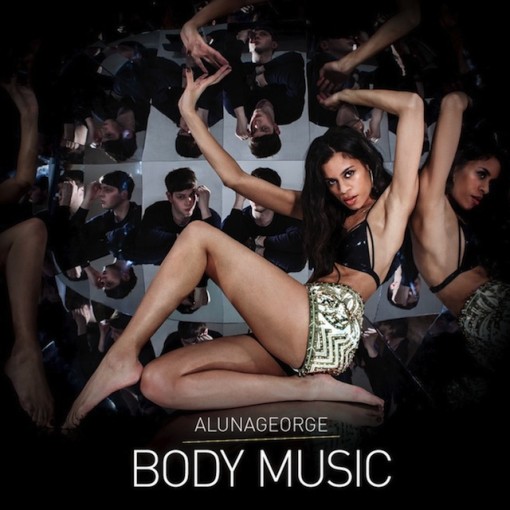Music fandom often follows a slow boomerang trajectory: listen to top-40 radio through your tween and early teen years, reject those impulses in favor of more cerebral, left-of-center music as you’re growing up, lean back toward pop as you settle into adulthood. The last couple of years have found a crop of young independent artists boldly attempting to reconcile those stages of their own listening life cycles, walking a tightrope of poptimism and experimentalism to create confectionary, homespun electronic music that’s sometimes described as future-pop. Grimes gushes about Mariah Carey and Aphex Twin in the same breath; Canadian duo Purity Ring have listed “Justin Timberlake, Clams Casino, and Holy Other” as inspirational forces behind their prismatic fairy tales; Glaswegian electro trio Chvrches have spoken about loving Fugazi and the Cure in interviews before divulging plans to cover Whitney Houston’s “It’s Not Right, But It’s Okay” in live shows. These omnivorous tendencies– along with the breakdown of genre boundaries and advancement of affordable home recording technology– have created inviting territory for the cleverest and most enterprising young musicians to explore.
Another intriguing act within the growing corral of future-pop artists is AlunaGeorge, a UK duo comprised of vocalist Aluna Francis and producer George Reid. When the two began giving interviews last year, they mentioned their love of old Timbaland and Neptunes-produced hits along with affinities for Radiohead, the Knife, and Joanna Newsom. Together the pair have adeptly synthesized those tastes and perfected a futuristic sound that blends wonky, wobbly beats drawn from 2-step and glitch with the irresistible hooks of “TRL”-era pop and the 90s R&B it was heavily indebted to. A decade ago, Aluna Francis might have been a long-lost member of Dream, the all-girl group behind the sleeper hit “He Loves U Not”, or a contestant on Diddy’s ill-fated “Making the Band”. The pair’s lyrics can even feel as though they were written for young teens of an era before smartphones and social media platforms mediated pubescent growing pains. “I usually wait for you to call/ But it’s getting closer between me and you,” Francis laments on the balladesque new song “Friends to Lovers”. “How do you make the change from friends to lovers/ When you risk looking like a fool?”
Following last year’s EP on Brooklyn label Tri Angle, their debut album Body Music arrives on a major (Island in the UK, the indie Vagrant in the U.S.); about half of its songs are new. The collection is a remarkably seamless extension of their early songs, an expert execution of a concept and aesthetic that felt perfectly crystallized even before anyone knew who the duo were. While there’s nothing on Body Music that hits quite as hard as their breakout hit, the crystalline R&B song “You Know You Like It”, there’s hardly a weak track to be found (save a misguided bonus cover of Montell Jordan’s “This Is How We Do It”). They tinker with a bit of balladry (“Friends to Lovers”), niche dance genres (“Lost & Found”), and lite disco-funk (“Kaleidescope Love”), but everything retains a uniformly slick veneer, propelled by Francis’ slightly warped, nasal vocals and ice-princess posture. There’s an enticing liquidity that carries over from the earlier material– beyond lyrics like “I want to be a diver into the sea” and “I’ve been treading water for your love”, the songs can sound like water hitting hard, shiny surfaces, or like ice chips being shot though narrow chrome tubes. The entire album is sexy and strange and sugary all at once. That these songs were recorded over the course of a couple years (straddling a major-label deal) and still maintain total fluidity throughout speaks to the strength and maturity of the duo’s initial formula.
But there, in the word formula, lies the catch. There’s not much wrong with Body Music, but its constellation of contemporary electro-pop elements can sometimes feel too slick for its own good. Francis and Reid almost do themselves a disservice by being so competent, by executing a single, well-defined sound so consistently and so tidily that the record can begin to create a lull. That’s been the fate of some of AlunaGeorge’s peers as well: Purity Ring’s 2012 debut possessed the same paradoxically frustrating one-note perfection; Chvrches’ sound is crisp and singular enough that they could face a similar challenge. It’s also possible that the sheer number of artists springing up and inhabiting this sphere slackens the future angle in all this future-pop. For Francis and Reid, one possible escape from their shiny little box might be to further experiment with blossoming dance music trends– something they successfully tried their hand at on a recent collaboration with Disclosure, another UK duo doing exciting, retro-futuristic things with newly malleable genre boundaries. But for now, it’s hard to complain about AlunaGeorge being a little bit too focused.




